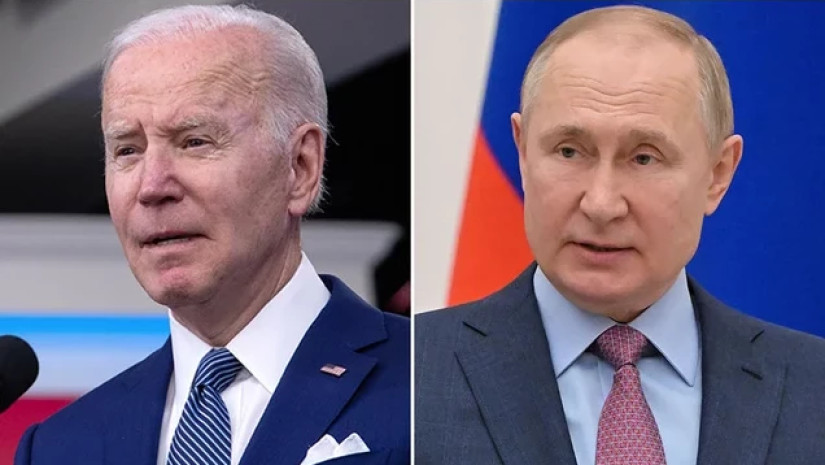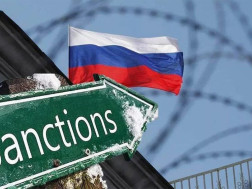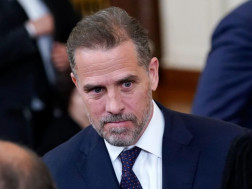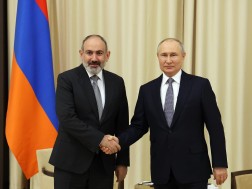Russia’s ongoing invasion of Ukraine has the United States focused on Europe’s immediate security needs, as it should — whether that’s bolstering troop presence at NATO’s borders or providing direct support to the Ukrainian military. But the U.S. must recognize that Putin’s ultimate objectives are to prevent countries on Russia’s periphery from developing into prosperous democracies and partners. The fact is if countries like Ukraine, Moldova, or Georgia are thriving democratic states, more and more Russians will demand the same at home, pressuring Putin’s authoritarian regime and stranglehold of the Russian people. As such, military support is not the only tool that can help nations at risk from Russian aggression.
We must consider what economic tools we have available to build resilience in countries under threat and strengthen American ties in the region — particularly in Georgia where Russian troops currently occupy 20 percent of its territory.
I am in Georgia right now, as part of my work as a visiting fellow with the German Marshall Fund. Georgians rally in support of Ukraine every night, forming at 7 p.m. and bringing supplies to be shipped off to Ukraine the next day.
Any economist here will tell you the same thing: The U.S. has a real opportunity to have an immediate impact that not only helps this small country on the edge of democracy, but also the real opportunity to push back Putin where it hurts.
The majority of Georgians support deeper integration with the West. This was clear from every Georgian I’ve spoken with. But given the current crisis in Ukraine, now is the exact time for the U.S. to take a specific concrete action that will help Georgia build a stronger economy: establish a bilateral free trade agreement (FTA).
An FTA is a legal agreement aimed at expanding business opportunities between two or more states. FTAs typically focus on reducing tariffs and duties that the cooperating countries place in imports and exports, as well as establishing mutually agreed upon rules for things like investment, intellectual property, and government procurement. Bilateral FTAs (agreements between two states) are always easier and can be decided upon quickly. In the case of Georgia, an FTA is an easy solution the Biden administration could take action on now — and one that would have immediate and long-lasting impact for Georgia. It’s also a success they could point to that has the potential to help both countries.
There is no doubt that an FTA with Georgia would have immediate economic impact — as well as long-term benefits for both Georgia’s democratic trajectory and American strategic interests. It would boost the value of the Georgian Lari overnight, spur private sector investment, and demonstrably counter Russian disinformation narratives that the United States is an uninterested and unreliable partner in the region. It would also strengthen Georgia’s regional leadership, which would have collateral benefits.
Georgia’s Minister of Foreign Affairs David Zalkaliani recently communicated to me that the potential was considerable. He said, “An FTA with Georgia would instantly increase U.S. soft power beyond Georgian borders, avoiding increased tensions [in the South Caucasus], building economic resilience, well-being and bilateral trade. History has proven the effectiveness of bilaterally beneficial trade, and we are sure a U.S.-Georgia FTA will have a net positive effect for both countries."
A Georgian business leader suggested to me it would show that the United States is not backing off.
An FTA would be a small give for the U.S. that would multiply investments we’re already making in Georgia. USAID is one of Georgia’s biggest partners on economic development and has spent nearly $1.8 billion on assistance since 1992 on a wide range of programs. The Georgian leaders I’ve spoken with believe — as would, I think, many development professionals — that an FTA would quadruple the effects of USAID’s current investment in Georgia.
In addition to helping Georgia, U.S. companies would benefit from an FTA with Georgia as well. One global lesson learned from the COVID-19 pandemic is the vulnerability of global supply chains to significant disruption. Companies have an interest in shortening the supply chain they need to bring products to European markets. Georgia, with a flexible labor code, competitive operational costs, and a permissive environment for foreign investment is an attractive option for foreign investment in supply chains.
The U.S. needs to think about countering Putin as a matter of economic policy, not just as much as a matter of security policy. Of the countries currently under Russian pressure, Georgia is low-hanging fruit for the U.S. to make an immediate positive impact.
In short, Georgians want an FTA, it’s a win-win for us all, and we should give it to them.
After all, it’s in our best interest.
Source: The Hill
















